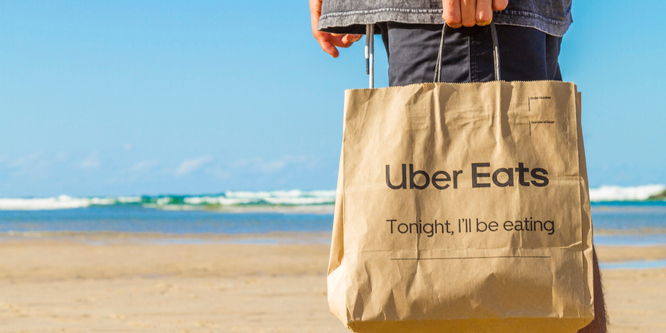
Source: iStock | ampueroleonardo
Uber Eats is purging 5,000 ghost kitchens from its app and setting stricter rules for the remaining ones after finding its platform flooded by virtual restaurants listing similar food options under different names.
“Diners are effectively seeing 12 versions of the same menu on the app. It’s fair to say that kind of erodes consumer confidence,” John Mullenholz, head of dark kitchens at Uber Eats, told The Wall Street Journal.
Uber Eats’ new guidelines require virtual locations to have menu items “at least 60 percent different” from any other online restaurants operating from the same location. The ghost kitchen and its parent restaurant must maintain a 4.3-star rating or higher on the app, have five percent or fewer orders that they have canceled and have a five percent or lower inaccurate orders rate.
The New York Post found one deli in the Yorkville section of Manhattan operating 27 different online restaurants across third-party delivery apps, many with similar menus but different prices.
For food establishments, having an excessive number of virtual restaurants operating from the same kitchen decreases the overall level of competition.
Consumers may face health risks since it’s not as easy to learn whether a virtual vendor is in compliance with inspections. Consumers may also find it deceptive not knowing where their food is being made. They may also feel duped in finding out their virtual gourmet sandwich shop order came from a pizza place, convenience store or chain restaurant.
Virtual kitchens served as replacements for indoor dining during the early stages of the pandemic and are still being touted by the delivery apps and logistics providers in the space as a way for restaurants to drive extra revenue streams and optimize existing operations despite the post-pandemic slowdown in online delivery.
Rishi Nigam, CEO of Atlanta-based Franklin Junction, which sets up more established brands such as Hooters, Nathan’s and Arthur Treacher’s Fish & Chips as virtual brands, told QSR Magazine, “There’s a lot happening in the industry now including relaxing of pandemic restrictions and inflation, but we see the convenience of digital ordering, delivery and pickup to be long-term shifts.”


Leave a Reply
You must be logged in to post a comment.